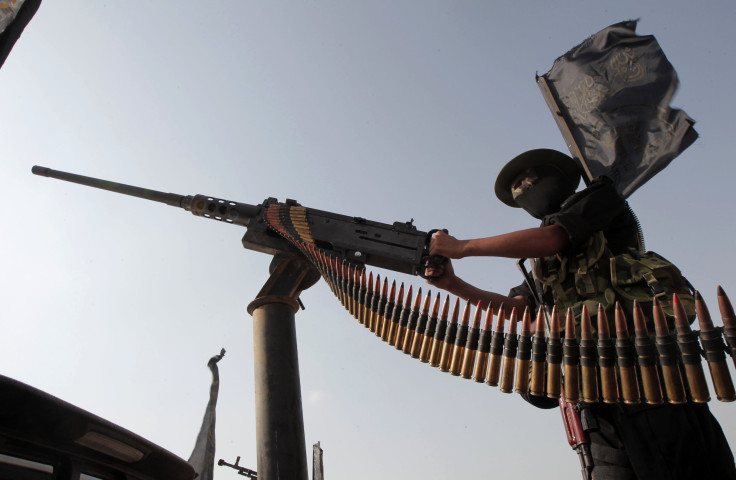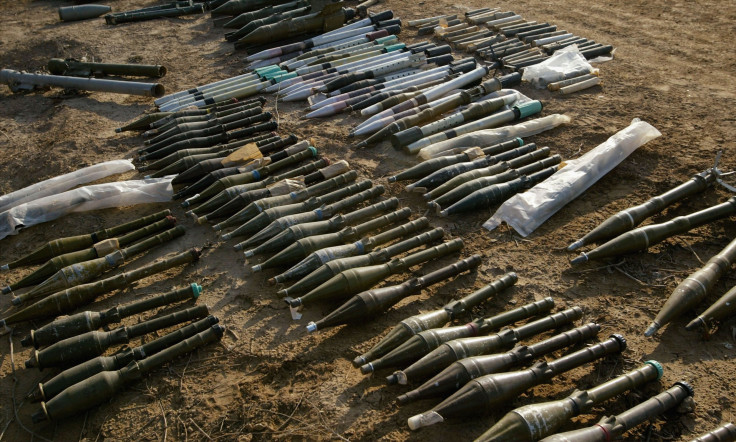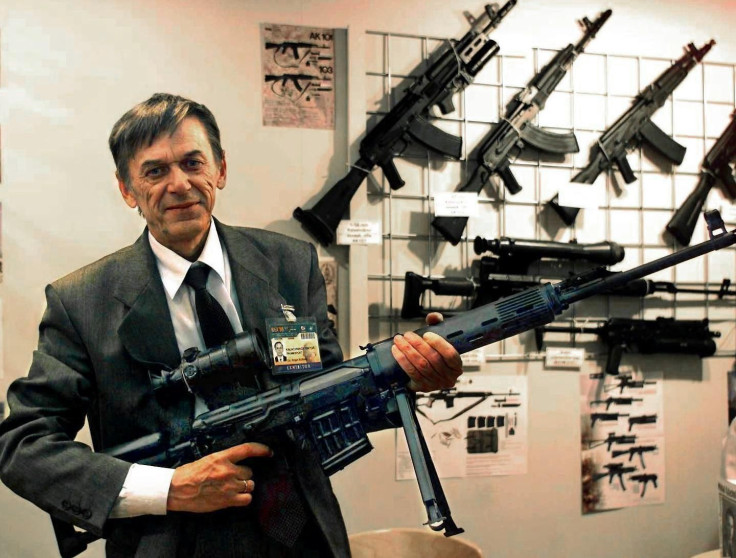Illegal Weapons Trade: Facebook Hosting Online Weapons Bazaars Despite Ban; Machine Guns Most Popular

Gun shows aren’t the only places to score weapons. Although Facebook recently imposed a ban on such transactions, terrorists like the Islamic State group have been setting up online bazaars on the social media network, offering everything from handguns to guided missiles.
The New York Times reported Facebook shut down six of seven suspicious groups the newspaper pointed out this week, based on a study in Libya by Armament Research Services (ARES) and Times reporting on similar groups in Syria, Iraq and Yemen.
“All social media networks are at the core just communications platforms, and there is no reason why people wouldn’t use them to trade in arms just like they trade in anything else,” Ian McCollum, author and editor of the blog Forgotten Weapons, said during an open Reddit question-and-answer session Friday.
During the rule of Libyan strongman Moammar Gadhafi, the arms trade was tightly regulated in Libya, the ARES study noted, but after his ouster in 2011 military stockpiles were raided, sending light weapons and small arms into the hands of armed groups and private sellers.

“From a virtually nonexistent domestic market, the revolution and its aftermath paved the way for a large illicit arms trade to emerge,” the study said. “Many of the players in this new market began to use new technologies to hawk their wares. Online sales via social media platforms are one of the tools currently being used for this purpose.”
The study said the trade is being conducted by “private or hidden groups,” largely inaccessible to the public at large. The groups largely operate in “large and important” population centers.
The study examined eight social media groups, six of them focused on sales in and around Tripoli. Two other groups were focused on Benghazi and Sabratha, along with Zawia and Sabha. The sellers were described as 20-30 years of age with ties to armed groups.
The majority of the weapons for sale, 73 percent, are of Russian origin, the study found, with 8 percent coming from Belgium and 6 percent from China. The Times reported in Syria, a number of the weapons are identical to those the United States supplied to rebel groups.
“It is likely that the majority of the weapons of unknown provenance … originated in former Warsaw Pact countries,” the study said.
The weapons generally are listed without pricetags, often resulting in bidding wars, the study said, with heavy machine guns making up the greatest percentage of the offerings.

“Online illicit arms markets are still in their infancy in the Middle East and North Africa region, and may continue to develop in both technical sophistication and the variety and volume of small arms or light weapons offered for sale,” the study concluded. “Although the platforms themselves may become more difficult to access as policies, moderation techniques and other factors shape availability, the marketplaces are still made up of individuals selling goods to buyers who want them.”
N.R. Jenzen-Jones, ARES' director, told Guns.com Hollywood’s depiction of “planes full of guns being rapidly unloaded is rare. It happens on a limited basis, but typically these weapons are diverted from the authorized trade.”
Monika Bickert, a former federal prosecutor responsible for developing and enforcing Facebook’s content standards, said one of the operations pointed out by the Times displayed pictures and discussed the weapons but did not offer them for sale, thus surviving the ban.
Bickert said Facebook had no way of monitoring sales when it first began allowing commerce on the site, but since payments now can be processed through Messenger, it has a better handle. Still it is up to Facebook users to report violators.
“Since we were offering features like that, we thought we wanted to make clear that this is not a site that wants to facilitate the private sales of firearms,” Bickert told the Times.
A spokesman for Armament Research Services told the Times the group had documented 6,000 trades on Facebook, “but it’s probably much bigger than that.”
© Copyright IBTimes 2024. All rights reserved.






















